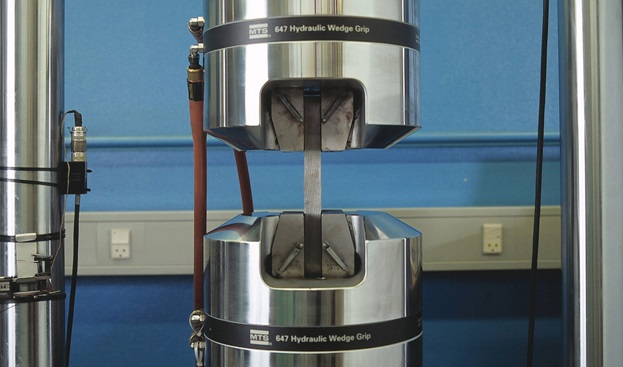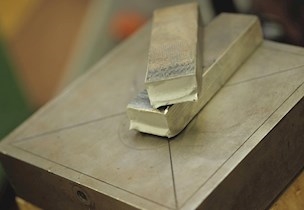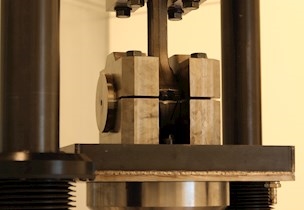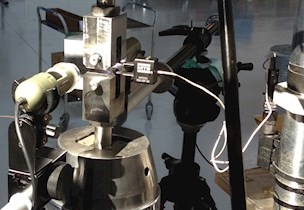Tensile testing
Accredited tensile testing of materials, metals, and joining methods ensures reliable results.
Tensile testing of materials, metals and joining methods
Manufacturers, suppliers, owners or authorities often benefit from having the strength of materials or joining methods determined by physical tensile testing. Verification is typically performed when:- Material properties must be documented
- Material certificates are upgraded – e.g. from 3.1 to 3.2 material certificates according to EN 10204.
- Welding procedure testing (WPQR)
- Type testing – e.g. reinforcement steel materials or welded reinforcement steels

Standard tensile testing at ambient or elevated temperatures offers a variety of information about the tested item such as:
- Tensile strength (Rm)
- Yield strength (Re)
- Proof strength, e.g. 0,2%-strength (R0,2)
- Elongation
- Reduction of area (Z)
- Deformation
With the advantage of having internal workshops for machining of test specimens it is ensured that the delivery time is reduced and adjusted to your wishes.
Services

Mechanical testing of materials
Control and examination of mechanical properties of materials and welds.

Fatigue testing
Understand the ability of materials, joints and products to withstand stress and corrosion.

Fracture mechanic testing
Stay ahead of brittle fracture, crack growth or material defects
Toughness testing
One of the most feared failures in steels is brittle fracture because it happens with no warning.
Testing of welds, brazings and expansion procedures
Testing of welds, brazings and expansion procedures is crucial in many industries of today.

